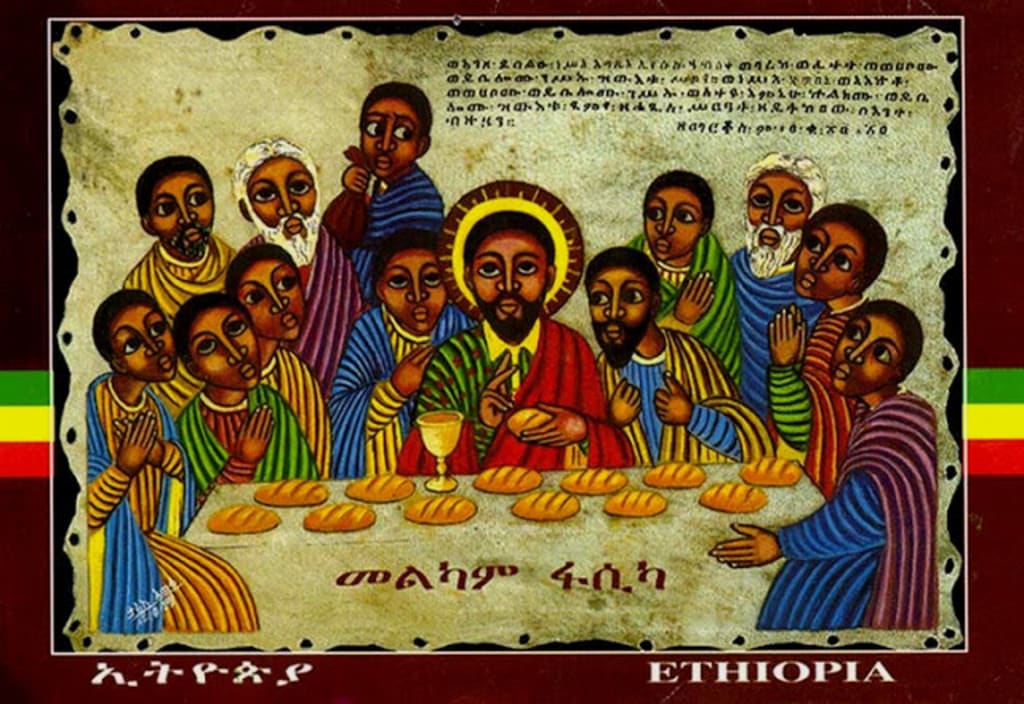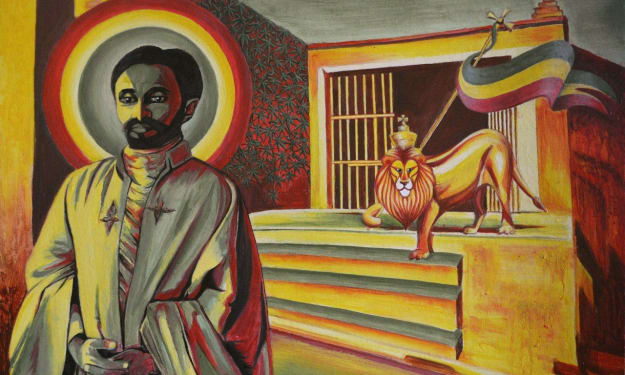The Stone That the Builder Refused and Yeshuah's Vision of a Better World
Lessons in Acceptance, Perseverance, and Hope for a More Just and Inclusive World

Welcome to this blog post about "The Stone That the Builder Refused and Yeshuah's Vision of a Better World". In the Bible, there is a well-known phrase that says "the stone that the builder refused has become the cornerstone" (Psalm 118:22). Yeshuah, also known as Jesus, used this phrase in his teachings to convey an important message about acceptance, perseverance, and redemption.
The significance of the stone that the builder refused lies in its symbolism. It represents the rejection of something or someone that may later prove to be invaluable. In Yeshuah's teachings, this stone represents the outcasts, the marginalized, and the oppressed, who are often overlooked and undervalued in society. Yeshuah taught that we should embrace these individuals and give them the opportunity to shine, just as the stone that was rejected became the cornerstone of a building.
In this post, we will explore Yeshuah's vision of a better world and how the stone that the builder refused is an integral part of that vision. We will discuss Yeshuah's teachings on acceptance, perseverance, and redemption, and how they can inspire us to build a better world. We will also examine how the stone that the builder refused can be a metaphor for our own lives and how we can apply Yeshuah's teachings to our own experiences.
Join us on this journey as we explore the timeless wisdom of Yeshuah and his message of hope and renewal for a better world.
The Stone That the Builder Refused: A Biblical Lesson on Acceptance
The phrase "the stone that the builder refused" has its origin in the Bible, specifically in Psalm 118:22. The verse reads, "The stone which the builders rejected has become the chief cornerstone." This verse was later referenced in the New Testament in Matthew 21:42, where Yeshuah uses it in one of his parables to convey an important message about acceptance.
In this parable, Yeshuah tells the story of a landowner who plants a vineyard and rents it out to some farmers. When the landowner sends his servants to collect his share of the produce, the farmers beat them and even kill some of them. Finally, the landowner sends his son to collect the produce, hoping that the farmers will respect him. However, the farmers see an opportunity to take the vineyard for themselves, and they kill the landowner's son as well. Yeshuah then asks his listeners what they think the landowner will do to these farmers, and they reply that he will put them to death and rent the vineyard to someone else.
Yeshuah then quotes Psalm 118:22, saying, "Have you never read in the Scriptures: 'The stone the builders rejected has become the cornerstone; the Yahuah has done this, and it is marvelous in our eyes'?" (Matthew 21:42). Yeshuah uses this verse to illustrate that the rejected stone represents him, the son of Yahuah, who will be rejected and killed by the religious leaders of his time. However, just as the stone that the builders rejected became the cornerstone of the building, so too will Yeshuah rise from the dead and become the cornerstone of a new spiritual foundation.
The importance of acceptance in building a better world cannot be overstated. Yeshuah's teachings emphasized the need to love one's neighbor as oneself, to treat others with compassion and respect, and to value every individual as a child of Yahuah. In the parable of the vineyard, Yeshuah teaches that the farmers who rejected the landowner's servants and son were punished for their greed and cruelty. In contrast, those who accept Yeshuah and his teachings will be rewarded with eternal life and a place in Yahuah's kingdom.
In our modern world, acceptance is just as important as ever. We live in a diverse and complex society where people from different backgrounds, races, religions, and cultures must learn to coexist peacefully. The lesson of the stone that the builder refused reminds us that we must not judge others based on their appearance, beliefs, or social status. Instead, we should strive to see the inherent value and dignity in every human being, and treat them with kindness, understanding, and acceptance. By doing so, we can build a better world where all people can thrive and reach their full potential.
Yeshuah's Vision of a Better World
Yeshuah's vision of a better world was one of love, compassion, and justice for all people. He taught that we should love our neighbors as ourselves, even those who are different from us, and that we should treat others with compassion and kindness. Yeshuah also emphasized the importance of seeking justice for the oppressed and marginalized, and he spoke out against those who used their power and authority to oppress others.
Yeshuah's teachings on love, compassion, and justice can be applied to building a better world in many ways. First, we can strive to treat others with the same level of respect and dignity that we would want for ourselves. This means showing kindness and compassion to those who are hurting or in need, and being willing to lend a helping hand to those who are struggling.
Secondly, Yeshuah's teachings remind us of the importance of seeking justice for all people, especially those who are oppressed or marginalized. We can work to address systemic injustices in our communities and societies, such as racism, poverty, and inequality, by advocating for policy changes and supporting organizations that work to promote social justice.
Inclusivity, diversity, and unity were also important values in Yeshuah's vision of a better world. He taught that all people are equal in the eyes of Yahuah, regardless of their race, ethnicity, gender, or social status. Yeshuah welcomed people from all walks of life into his community, including those who were considered outcasts or sinners.
We can apply this aspect of Yeshuah's teachings by striving to create inclusive communities that value diversity and promote unity. This means being open to people from different backgrounds and perspectives, and working to build bridges between different groups to promote understanding and cooperation.
The Rejected Stone and the Resurrected Savior: Yeshuah's Lessons on Perseverance
Yeshuah's rejection and resurrection provide powerful lessons on perseverance that can inspire us to face the challenges and adversities of life with faith, hope, and resilience. Despite being rejected and condemned by the religious and political leaders of his time, Yeshuah continued to preach his message of love, compassion, and justice to his followers. Even in the face of persecution and ultimately, his crucifixion, Yeshuah did not waver in his beliefs or his commitment to his mission.
Yeshuah's resurrection is a testament to the power of perseverance and the triumph of hope over despair. Despite being killed, he rose again on the third day, demonstrating that even death could not defeat his message of love and salvation. This event became the cornerstone of the Christian faith and a powerful symbol of the power of perseverance.
Yeshuah's teachings also emphasize the importance of faith, hope, and resilience in overcoming challenges and adversity. He taught his followers to have faith in Yahuah and to trust in his plan for their lives, even when things seem bleak or hopeless. Yeshuah also emphasized the importance of hope, encouraging his followers to look beyond their present circumstances and to envision a better future. Finally, Yeshuah's teachings encourage us to be resilient in the face of setbacks and challenges, to keep moving forward and to never give up on our goals and dreams.
From Rejection to Redemption: Yeshuah and the Stone That the Builder Refused
Yeshuah's teachings on acceptance, perseverance, and redemption are interconnected, and the stone that the builder refused is a powerful metaphor for our own lives. In the Bible, the stone that the builder refused refers to a rejected stone that later becomes the cornerstone of a building. This metaphor speaks to the idea that sometimes the things or people we reject can end up being the very things we need to succeed.
Yeshuah's life exemplified this message. Despite being rejected and condemned by those in power, Yeshuah continued to preach his message of love, compassion, and justice. His perseverance in the face of adversity, including his eventual crucifixion, became a powerful symbol of hope and redemption.
Similarly, the stone that the builder refused can be a metaphor for our own lives. We may face rejection, disappointment, or failure at various points in our lives. However, Yeshuah's teachings remind us that even the things or people we reject can have value and potential. It is up to us to have the courage and humility to see this potential and to embrace it.
Yeshuah's message of hope and renewal is another key aspect of this metaphor. Just as the rejected stone can become the cornerstone of a building, Yeshuah's resurrection is a symbol of hope and renewal. His teachings emphasize the importance of forgiveness, redemption, and the possibility of transformation.
Conclusion
Yeshuah's teachings on acceptance, perseverance, and redemption provide powerful lessons that can inspire us to build a better world. The stone that the builder refused serves as a metaphor for our own lives, reminding us that even the things or people we reject can have value and potential. Yeshuah's rejection and resurrection are symbols of hope and renewal, and his teachings emphasize the importance of love, compassion, justice, inclusivity, diversity, and unity.
To build a better world, we must embrace these teachings and apply them to our own lives. We must have the courage to see the potential in ourselves and in others, to persevere in the face of adversity, and to seek redemption and renewal. By embodying Yeshuah's message of hope, we can create a world that is more just, more compassionate, and more inclusive.
So let us reflect on Yeshuah's teachings and strive to live out these values in our daily lives. Let us be the stones that were once rejected but can become the cornerstone of a better world. Together, we can build a more beautiful, more loving, and more just world for all.
Final Note
If you’re interested in exploring who is Jah further, we invite you to check out Fifth Degree’s collection of Rastafarian clothing. Our clothing is designed to reflect the spirit and teachings of Rastafarianism, with bold colors, empowering messages, and a commitment to sustainability and ethical production. We believe that what you wear can be a powerful expression of your values and beliefs, and we’re proud to offer a range of high-quality, stylish, and socially conscious clothing for individuals who are seeking to live in harmony with nature and the divine. Visit our website today to learn more about our collection and find the perfect Rastafarian clothes for woman for you.
About the Creator
Enjoyed the story? Support the Creator.
Subscribe for free to receive all their stories in your feed. You could also pledge your support or give them a one-off tip, letting them know you appreciate their work.






Comments
There are no comments for this story
Be the first to respond and start the conversation.